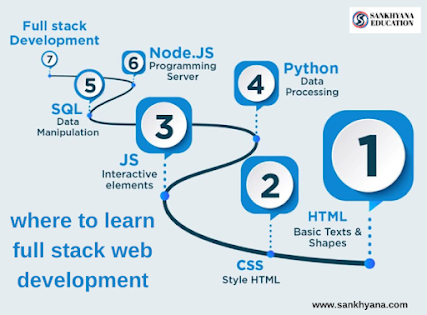Challenges and Opportunities in Data Science Education
Challenges and Opportunities in Data Science Education
Data Science has emerged as a critical discipline in the modern world, powering businesses, industries, and scientific research with data-driven insights.
Introduction
Data Science has emerged as a critical discipline in the modern world, powering businesses, industries, and scientific research with data-driven insights. As the demand for skilled data scientists continues to grow, so does the need for effective Data Science education. In this blog, we will explore the challenges and opportunities facing the field of Data Science education, and how educators can address them to produce competent and industry-ready data professionals.
Challenges in Data Science Education
1. Rapidly Evolving Landscape:
Data Science is a dynamic field, with new tools, technologies, and methodologies constantly emerging. This rapid evolution can make it challenging for educational institutions to keep their curriculum up-to-date and relevant. The risk is that students might learn outdated techniques, hindering their employability upon graduation.
2. Interdisciplinary Nature:
Data Science draws from various disciplines like statistics, computer science, mathematics, domain-specific knowledge, and more. Integrating these diverse subjects into a cohesive curriculum can be complex, as it requires collaboration between faculties with different expertise.
3. Lack of Quality Data:
Data Science heavily relies on real-world data to create meaningful insights. However, obtaining quality datasets for educational purposes can be difficult due to privacy concerns, data availability, and costs. Without access to relevant and large-scale datasets, students may not fully grasp the challenges of working with actual data.
4. Technical Infrastructure:
To effectively teach Data Science, institutions require robust technical infrastructure to support resource-intensive tasks like data analysis, machine learning, and big data processing. Ensuring that all students have access to the necessary hardware and software can be a financial burden for educational institutions.
5. Shortage of Qualified Instructors:
Finding and retaining qualified Data Science instructors is a challenge. The field's high demand for experienced practitioners often leads to a shortage of educators with practical industry knowledge. This can hinder the quality of instruction and limit students' exposure to real-world applications.
Opportunities in Data Science Education
1. Project-based Learning:
Emphasizing project-based learning allows students to gain hands-on experience and develop problem-solving skills. By working on real-world projects, students can bridge the gap between theoretical concepts and practical applications.
2. Online Learning Platforms:
The rise of online learning platforms presents an opportunity for students to access Data Science courses from reputable institutions and industry experts worldwide. These platforms offer flexibility, enabling learners to study at their own pace and in their preferred areas of interest.
3. Industry-Academia Collaboration:
Establishing strong ties between educational institutions and industries can help align the curriculum with real-world demands. Guest lectures, internships, and industry-sponsored projects provide students with exposure to current industry practices.
4. Data Science Competitions:
Participating in data science competitions, such as Kaggle competitions, encourages students to apply their knowledge in a competitive environment. These competitions foster a sense of accomplishment and provide an opportunity to showcase skills to potential employers.
5. Continuous Learning and Upskilling:
Data Science is ever-evolving, making continuous learning essential. Encouraging students to engage in lifelong learning and upskilling helps them stay updated with the latest trends and technologies.
Conclusion
Data Science education plays a vital role in nurturing the next generation of data professionals. Addressing the challenges while embracing the opportunities can result in a comprehensive and effective Data Science curriculum. By fostering a combination of theoretical knowledge, practical experience, and a focus on real-world problem-solving, educators can equip students with the skills and adaptability required to excel in the dynamic field of Data Science.
.png)

.png)

Comments
Post a Comment